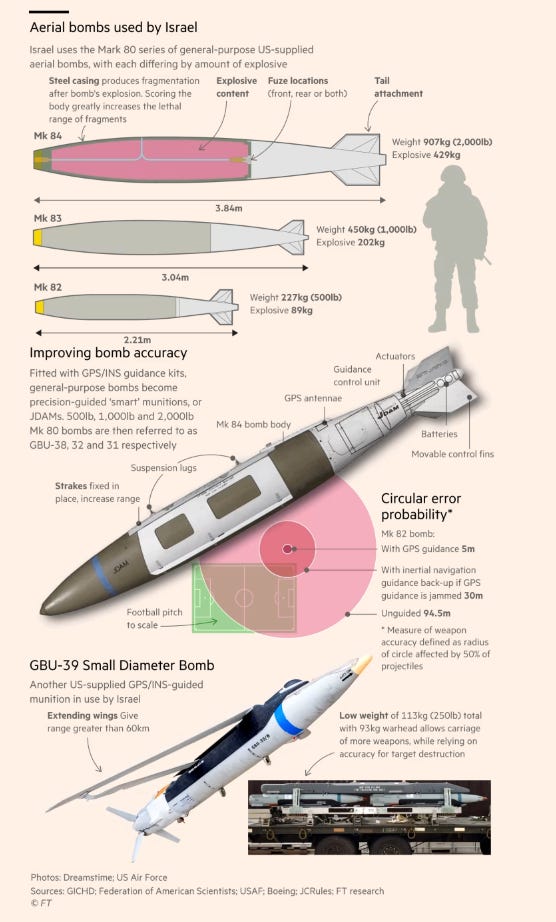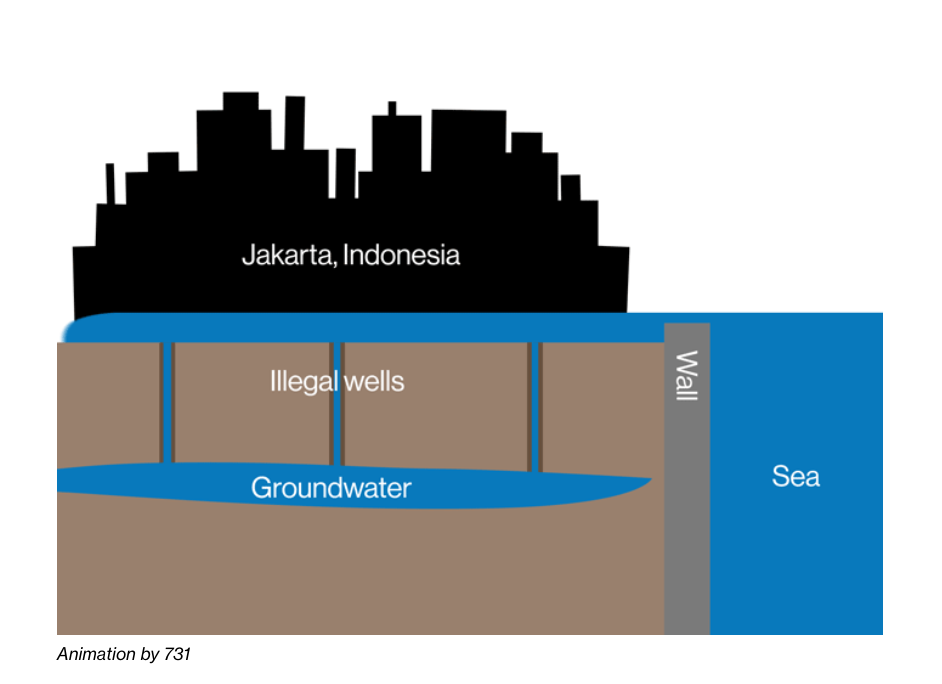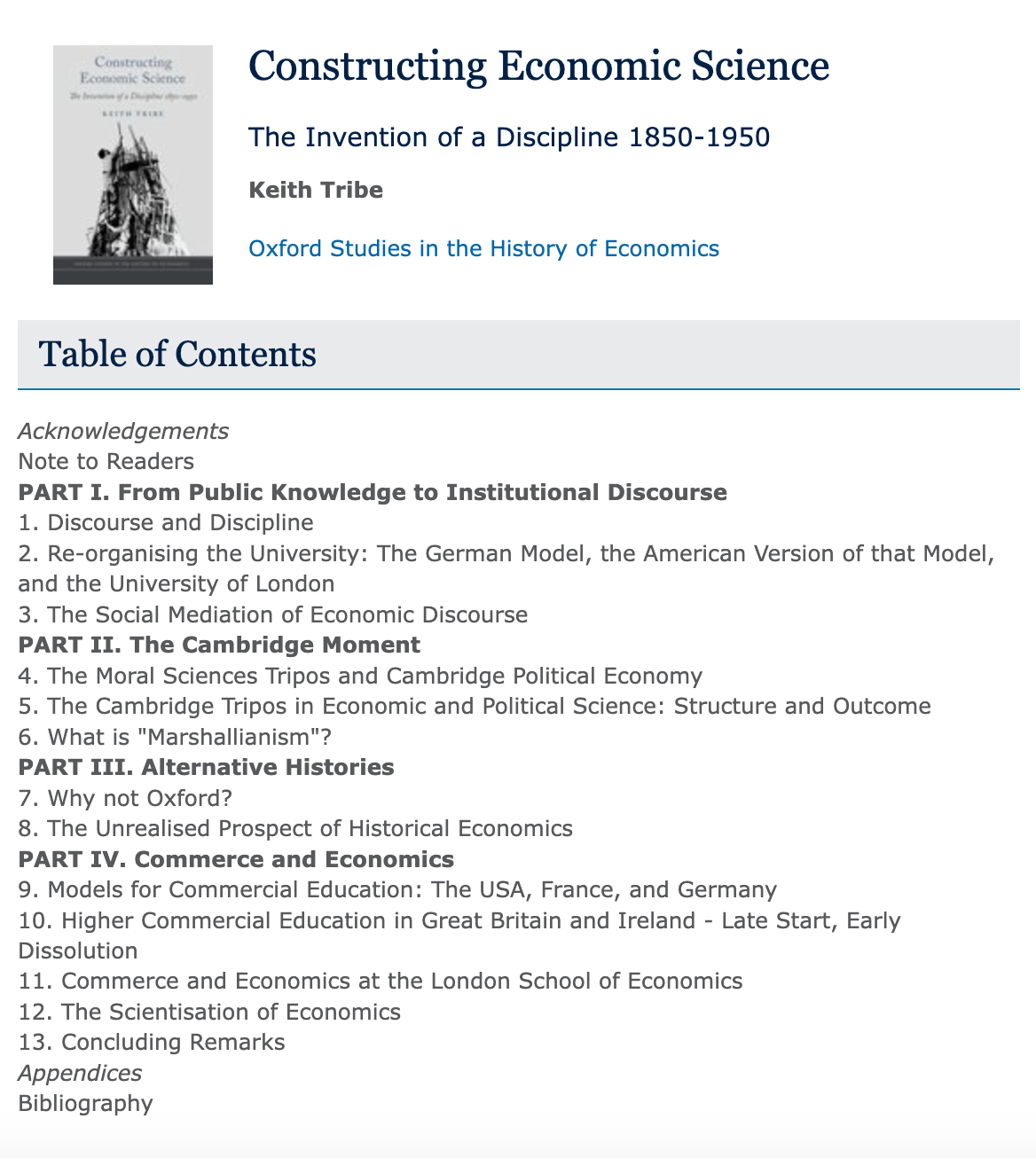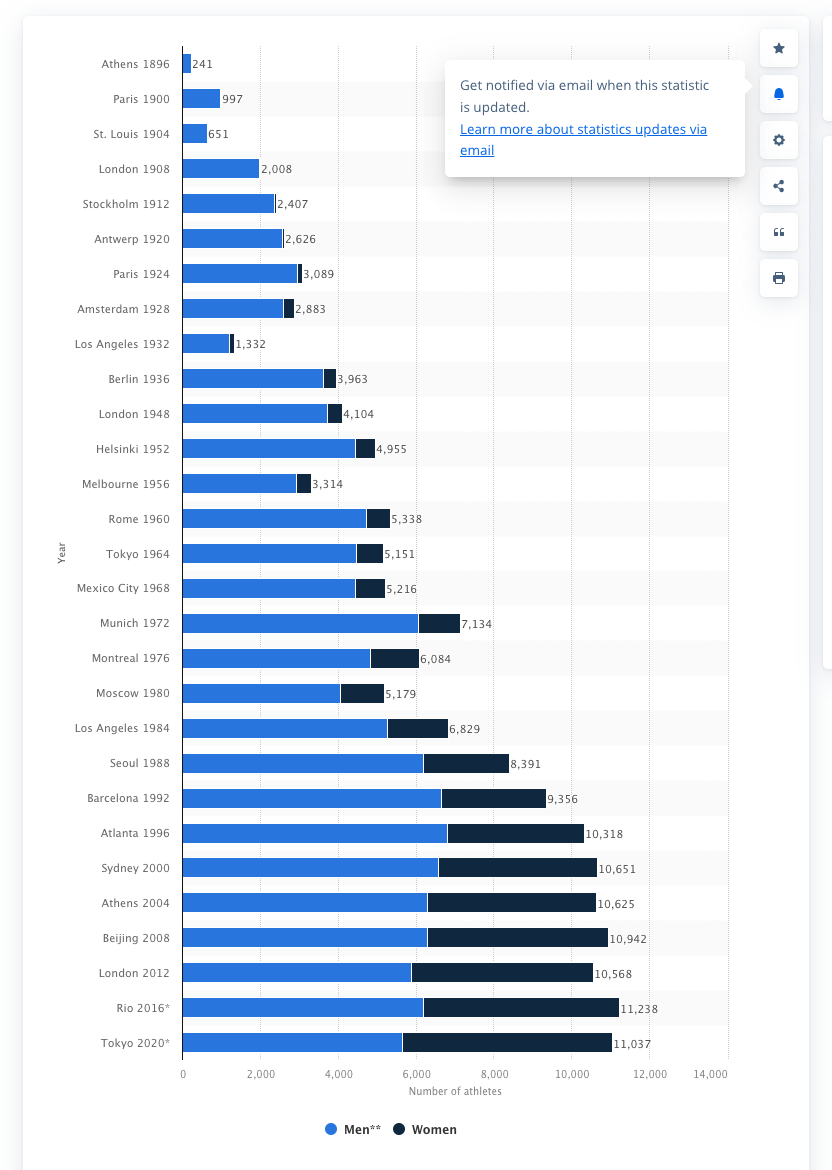Munitions, munitions, munitions, hairdressing prices, Jakarta sinking & the making of economics
Great links, images and reading from Chartbook Newsletter
Liu Xiaodong, Migrations:
Liu Xiaodong, who was born in Liaoning province in 1963 and trained in Beijing, is celebrated for his very personal painterly style midway between historical painting and a reporter’s angle on the contemporary world. Seemingly routine moments or daily events take on an epic monumentality in Liu’s large canvases, akin to stills recording places in the world marked by conflict or by social and human tension.
Source: Palazzo Strozzi
This is the free version of Top Links. To get the full Top Links feed with lots more material and analysis, please click here:
Munitions, munitions, munitions
Benjamin Netanyahu, at least in private, has been blunt about what Israel needs most to destroy Hamas: a steady supply of more US bombs. “We need three things from the US: munitions, munitions, and munitions,” the Israeli prime minister told a group of local government officials, according to a recording obtained by the Israel Hayom newspaper. “There are huge demonstrations in western capitals,” added Netanyahu, who is concerned political pressure overseas might threaten the US arms shipments. “We need to apply counter-pressure . . . There have been disagreements with the best of our friends.” Israel has expended vast amounts of ammunition in its war against Hamas in Gaza. The modern western weaponry used, from satellite-guided “bunker busting” bombs to pinpoint-accurate laser-guided missiles, have eroded Hamas’s military capabilities and, according to the Israel Defense Forces, killed more than 5,000 of the group’s estimated 30,000 fighters.
Citing estimates of damage to urban areas, military analysts say the destruction of northern Gaza in less than seven weeks has approached that caused by the years-long carpet-bombing of German cities during the second world war. “Dresden, Hamburg, Cologne — some of the world’s heaviest-ever bombings are remembered by their place names,” said Robert Pape, a US military historian and author of Bombing to Win, a landmark survey of 20th century bombing campaigns. “Gaza will also go down as a place name denoting one of history’s heaviest conventional bombing campaigns.”
Source: FT
Nothing happens by accident
Several of the sources, who spoke to +972 and Local Call on the condition of anonymity, confirmed that the Israeli army has files on the vast majority of potential targets in Gaza — including homes — which stipulate the number of civilians who are likely to be killed in an attack on a particular target. This number is calculated and known in advance to the army’s intelligence units, who also know shortly before carrying out an attack roughly how many civilians are certain to be killed. … In one case discussed by the sources, the Israeli military command knowingly approved the killing of hundreds of Palestinian civilians in an attempt to assassinate a single top Hamas military commander. “The numbers increased from dozens of civilian deaths [permitted] as collateral damage as part of an attack on a senior official in previous operations, to hundreds of civilian deaths as collateral damage,” said one source. “Nothing happens by accident,”
Source: 972 magazine
Jakarta sinking
Venice is sinking. So are Rotterdam, Bangkok and New York. But no place compares to Jakarta, the fastest-sinking megacity on the planet. Over the past 25 years, the hardest-hit areas of Indonesia’s capital have subsided more than 16 feet. The city has until 2030 to figure out a solution, experts say, or it will be too late to hold back the Java Sea.
Cue Anthoni Salim, the billionaire owner of PT Air Bersih Jakarta, the firm tapped by the government to expand piped water access to the city’s 11 million residents immediately, if not sooner. As of now, one in three Jakartans doesn’t have access to piped water, relying instead on the thousands of illegal wells that dot the city — and deplete the aquifers and weaken the ground, creating prime conditions for further sinking.
Source: Bloomberg
Dear Reader,
Glad you are enjoying this Top Links. Chartbook Newsletter is fun to write. And I’m delighted it goes out for free to readers around the world. But it takes a lot of work! What sustains that effort are voluntary subscriptions from paying supporters. As a thank you, several times per week, paying supporters of Chartbook Newsletter receive an email like this, jam-packed with fascinating images, links and reading, as well as longer analytical essays. This free email is just some of that content. If you would like to receive the full Top Links in future, click here to join the supporters’ club:
Hairdressing spillover or “cost disease” - a briefing on new economic conditions
Subscribers only.
Liu Xiaodong, Xia Xing in Nandaihe, 1992. Source: Artmap (with an incredible collection of works to view online)
UK infant mortality - an interesting lesson
Subscribers only.
More socialist nationalism?
Subscribers only.
Out of harm’s way in China
Subscribers only.
The invention of economics
Keith Tribe is a fascinating scholar, the sort of iconoclastic revisionist whose broadsides soon become new orthodoxies, and an expert reader of theoretical texts from classical political economy at the birth of modernity to Max Weber. He started out (as many did in the 1970s) grappling with Marx, and with the complicated status of Marx’s unpublished manuscripts on the critique of political economy. Tribe’s new book is a must-read:
Women in sport
This figure shows the number of male and female athletes participating at the Summer Olympics from 1896 to 2020:
Liu Xiaodong, Jincheng Airport, 2010. Source: Frieze











